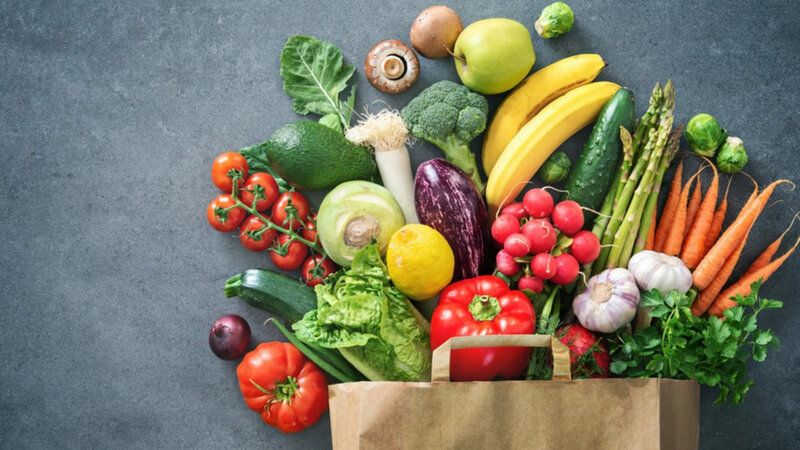Discover The Top 10 Benefits Of Going Organic
Do you know that the fruits, vegetables, and other items you find in your weekly shopping basket are cultivated in soil that undergoes pesticide and herbicide spraying? These chemicals are applied multiple times to prevent insects from damaging flourishing crops.
Additionally, some produce is coated with wax to protect it during transportation and handling, while others are artificially colored using dyes to enhance their appearance on store shelves. Shockingly, Australia alone utilizes over 29,500 tonnes of herbicides, insecticides, fungicides, and plant growth regulators each year.
Consequently, when you prepare a meal with these items, such as stir-fried vegetables or a colorful fruit salad, you may inadvertently expose yourself, your loved ones, or your friends to a mixture of chemicals.
This realization alone should be enough to justify spending a few extra dollars on locally sourced organic produce, which provides peace of mind by offering additional nutrients, reducing pollution, and avoiding harmful chemicals and toxins.
When you purchase from certified organic growers and producers, you can be assured that the farm has followed organic farming practices for at least three years.
10 Benefits Of Going Organic
However, if you require further persuasion or are unaware of the significant health benefits associated with consuming organic food, here are the top ten reasons why supporting your local organic grocer and avoiding large international supermarket chains is worthwhile.
1. Minimize Environmental Pollution
The use of chemicals, pesticides, and fertilizers in conventional farming contributes to environmental pollution, contaminates water sources, and degrades the quality of fertile farmland.
In contrast, certified organic standards strictly prohibit the use of toxic chemicals in farming and promote responsible management of soil health and biodiversity.
By adhering to organic farming practices, pollution is significantly reduced, water conservation is prioritized, soil erosion is minimized, soil fertility is enhanced, and energy consumption is decreased.
Moreover, farming without pesticides benefits nearby wildlife, birds, and animals, as well as individuals residing in close proximity to agricultural areas.
2. Eliminate Chemical Exposure
Opting for organic foods is the sole means of steering clear of synthetic pesticides and fertilizers found in conventionally grown produce.
Even after rinsing, a typical non-organic apple contains around 20-30 artificial toxins on its skin. Consuming crops treated with any amount of chemicals can adversely affect your well-being.
In contrast, organic crops are more nourishing and safeguard your health by preventing the introduction of unwanted and unnecessary toxins into your body.
3. Enhanced Flavor of Real Food
A major reason why many individuals opt for organic products is the exceptional taste of organic food. Still skeptical? Take a bite of a non-organic cucumber, apple, berry, or tomato, and then savor an organically grown one.
You will be astonished by the incredible sweetness, juiciness, and flavor of the organic option. The stark contrast in taste is attributed to the absence of pesticide coatings on organic fruits and vegetables, allowing them to fully ripen in the field before being directly delivered to you.
Unlike conventionally grown produce that undergoes long-distance shipping, artificial ripening processes, and prolonged storage, organic food maintains its amazing natural flavors. With organic produce, the true essence and delightful tastes are allowed to shine through.
4. Increased Nutritional Value
Organic foods surpass commercially grown foods in terms of nutrients, vitamins, minerals, enzymes, and micronutrients. This superiority arises from the sustainable management and nourishment of the soil in organic farming practices.
Scientific studies comparing the nutritional composition of organically grown and conventionally grown fruits, vegetables, and grains consistently demonstrate higher levels of various nutrients in organic food crops.
By opting for organic produce, you can enhance your diet with a greater abundance of essential nutrients.
5. Steer Clear of Genetically Modified Food
Genetically modified organisms (GMOs) refer to plants, animals, microorganisms, or other organisms whose genetic composition has been altered through genetic engineering techniques.
This modern scientific practice involves creating novel combinations of genes from plants, animals, bacteria, and viruses that do not naturally occur or arise through traditional crossbreeding methods.
Presently, there is no mandatory labeling requirement for foods containing genetically modified materials. Therefore, the only reliable way to ensure that your food is free from GMOs and devoid of nanotechnology is to opt for certified organic products.
By choosing organic, you can confidently avoid genetically modified food and its potential implications.
6. Preserve Our Ecosystems
Organic farming supports farming in harmony with nature and focuses on environmentally sustainable practices. Preservation of soil and crop rotation keep farmlands healthy and chemical-free.
Wildlife, insects, frogs, birds, and soil organisms are all vital parts of keeping the earth, crops, and farms functioning to their full potential. Reducing nitrogen fertilizers can assist in lowering Australia’s greenhouse gas emissions.
7. Genuine Free-Range and Pasture-Fed Products
For individuals who consume meat or dairy products, transitioning to organic has become increasingly crucial for maintaining good health. Conventionally farmed dairy cows and livestock are regularly exposed to antibiotics, growth-promoting drugs, anti-parasite medications, and various other substances.
These substances subsequently find their way into the meat and dairy products consumed by individuals. In contrast, certified organic animal products must adhere to strict standards, ensuring they are free from hormones and antibiotics. Additionally, organic certification requires that animals are both pasture-fed and free-range.
By choosing organic animal products, you can be confident that the animals were raised with the highest welfare standards, enjoying ample space to graze naturally on organic pasture. Organic farming practices also prohibit the use of confined cages for chickens or sow stalls for pigs.
Furthermore, the transportation of organic animals follows stringent guidelines, and they are only sent to certified organic abattoirs, where comfortable holding pens and humane stunning methods are employed prior to slaughter, ensuring that no animals are killed in the presence of others.
8. Unseen Expenses of Non-Organic Agriculture
When we purchase conventionally farmed food, we unknowingly bear the hidden costs through our taxes. Billions of dollars are spent annually on subsidizing fossil fuels used by conventional farmers, as the majority of the chemicals employed in conventional farming rely on inexpensive oil.
Additionally, significant funds are allocated to addressing the environmental consequences caused by agrochemicals, particularly their impact on natural water supplies. On an individual level, choosing organic products results in fewer health issues stemming from the consumption of pesticide residues and chemical fertilizers.
This, in turn, reduces medical expenses later in life and lowers the incidence of food allergies and sensitivities. By opting for organic, we not only prioritize our own well-being but also alleviate the burdensome costs associated with conventional farming practices.
9. Empower Village Farmers Directly
Certified organic family farms operate in harmony with their local ecosystems, prioritizing sustainable agricultural practices. These small-scale organic farms often face challenges when competing in the global marketplace. By purchasing their produce, you provide them with a fighting chance in today’s globalized economy.
Supporting these village farmers not only helps them sustain their livelihoods but also contributes to the preservation of traditional farming methods and the well-being of local communities.
In contrast, buying non-organic products from large supermarket chains typically supports multinational food corporations, which may have different priorities and values.
By choosing organic and supporting village farmers, you play an active role in promoting a more sustainable and community-centered food system.
10. Secure the Well-being of Our Children and Future Generations
By choosing organic food, you actively contribute to shaping a sustainable future for the generations to come. If you envision a world where your children and grandchildren can grow up healthy and happy, with the ability to explore the countryside and play in the natural landscapes, it is essential to embrace organic practices for the sake of our collective future.
Food is the fundamental source that sustains us, a truth recognized by humanity for centuries. However, in recent times, we seem to have lost touch with this simple yet profound understanding.
We have relinquished the power to nourish our own lives, allowing the majority of our food supply to be controlled by multinational corporations heavily reliant on industrial fertilizers and pesticides.
It is unrealistic to expect optimal health and well-being when we consume food laced with toxic chemicals. By choosing organic, we reclaim our agency in sustaining our own lives and safeguarding the future.
It is an act of empowerment and responsibility, ensuring that our children and future generations can thrive in a world where nature and human health are prioritized.
Let us recognize the significance of organic food in securing a better, healthier, and more sustainable future for all.
Final Note:
So, instead of merely getting by, why not embrace the opportunity to thrive? The extensive use of pesticides in conventional agriculture has far-reaching effects, impacting not only those who consume the treated crops but also farm workers, local communities residing near farms, wildlife, pollinators, and the overall environment.
We are interconnected, and the decision to purchase organic products is a choice that benefits us all, leading to longer, healthier, and happier lives while also saving money.
By choosing organic, we opt for a more authentic and enjoyable future. It is a step towards living in harmony with nature, prioritizing our well-being and that of the planet.
Organic agriculture offers a genuine alternative that safeguards our health, supports local communities, and preserves biodiversity.
Embracing the organic lifestyle paves the way for a cost-effective and sustainable future, allowing us to thrive in all aspects of our lives. So, let’s make the choice to go organic and unlock a world of possibilities for a brighter future.






















